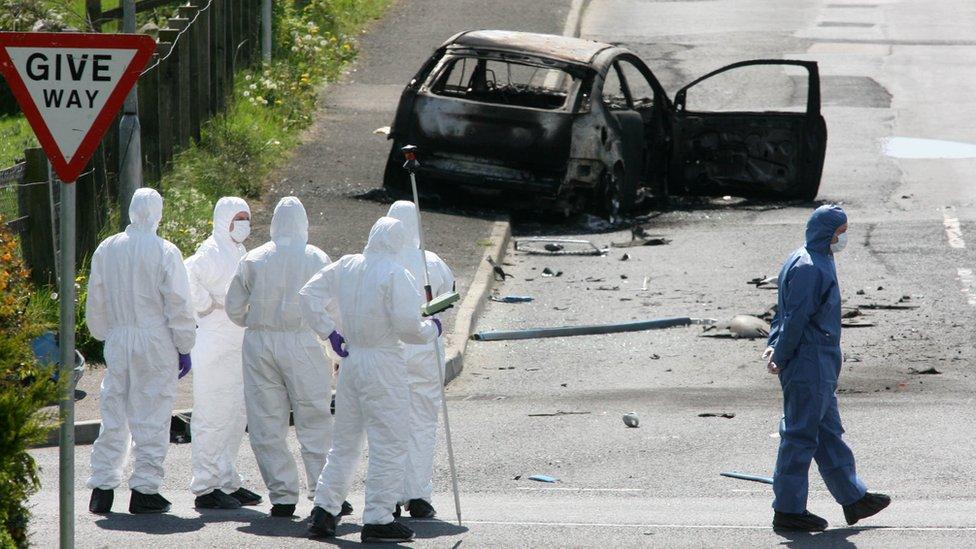PSNI bomb attack: Gavin Coyle sentence may be appealed
- Published

The attack on the off-duty officer happened near Castlederg in May 2008
Prosecutors are considering whether to appeal the sentence given to a man for his role in a bomb attack on an off-duty Catholic police officer.
The Real IRA attack happened at Spamount, near Castlederg, in 2008.
Gavin Coyle, 46, from Mullaghmore Drive, Omagh, was jailed for at least four years at Belfast Crown Court on Friday and will serve another two on licence.
He provided the car used to carry the bomb and also admitted IRA membership.
On Monday, the Public Prosecution Service (PPS) confirmed that it was considering whether to refer the sentence to a higher court.
The Director of Public Prosecutions, Stephen Herron, now has 25 days to make that decision.
"While sentencing is a matter for the judiciary, the Director of Public Prosecutions does have the power to refer particular sentences to the Court of Appeal on the grounds that they may be unduly lenient," a PPS spokesperson said.
"An unduly lenient sentence is one that falls outside the range of sentences that a judge, taking into consideration all relevant factors and having regard to sentencing guidance, could reasonably consider appropriate.
"We are considering whether there is a legal ground to refer the sentence in this case to the Court of Appeal for consideration."

Gavin Coyle on his way to an earlier hearing
The officer was left with "permanent disfiguring injuries" after the Real IRA attack, Belfast Crown Court was told last week.
He suffered serious leg injuries and was rescued by a member of the public, external, who dragged him from the wreckage shortly before it burst into flames.
He has since struggled to come to terms with the physical and mental repercussions of the bombing and has suffered mental ill-health.
Coyle had previous convictions for weapons offences.
The judge said his offending was "indicative of a person committed to acts of terrorism".
She described the attack as cowardly, calculated and cold-blooded and said it was "carried out with one aim: to take the life of a police officer".
The office of Lady Chief Justice, Dame Siobhan Keegan, told the BBC that it would not be appropriate to comment on a particular case.
"The sentence imposed in any individual case will depend on the specific circumstances of that case," a spokesperson said.
"If the Director of Public Prosecutions considers the sentence to be too lenient, he has the power to refer it to the Court of Appeal for review."
Related topics
- Published6 October 2023
